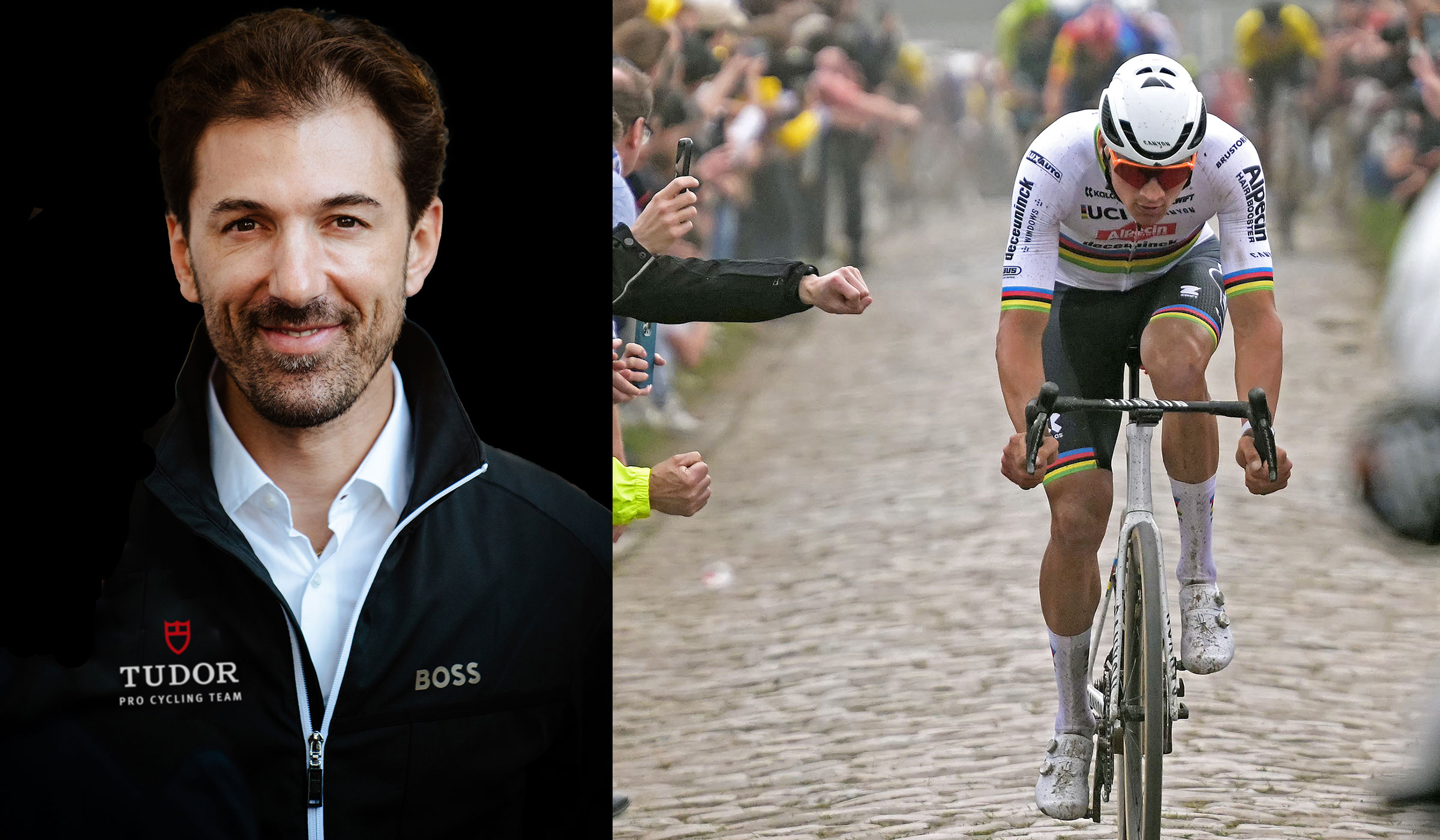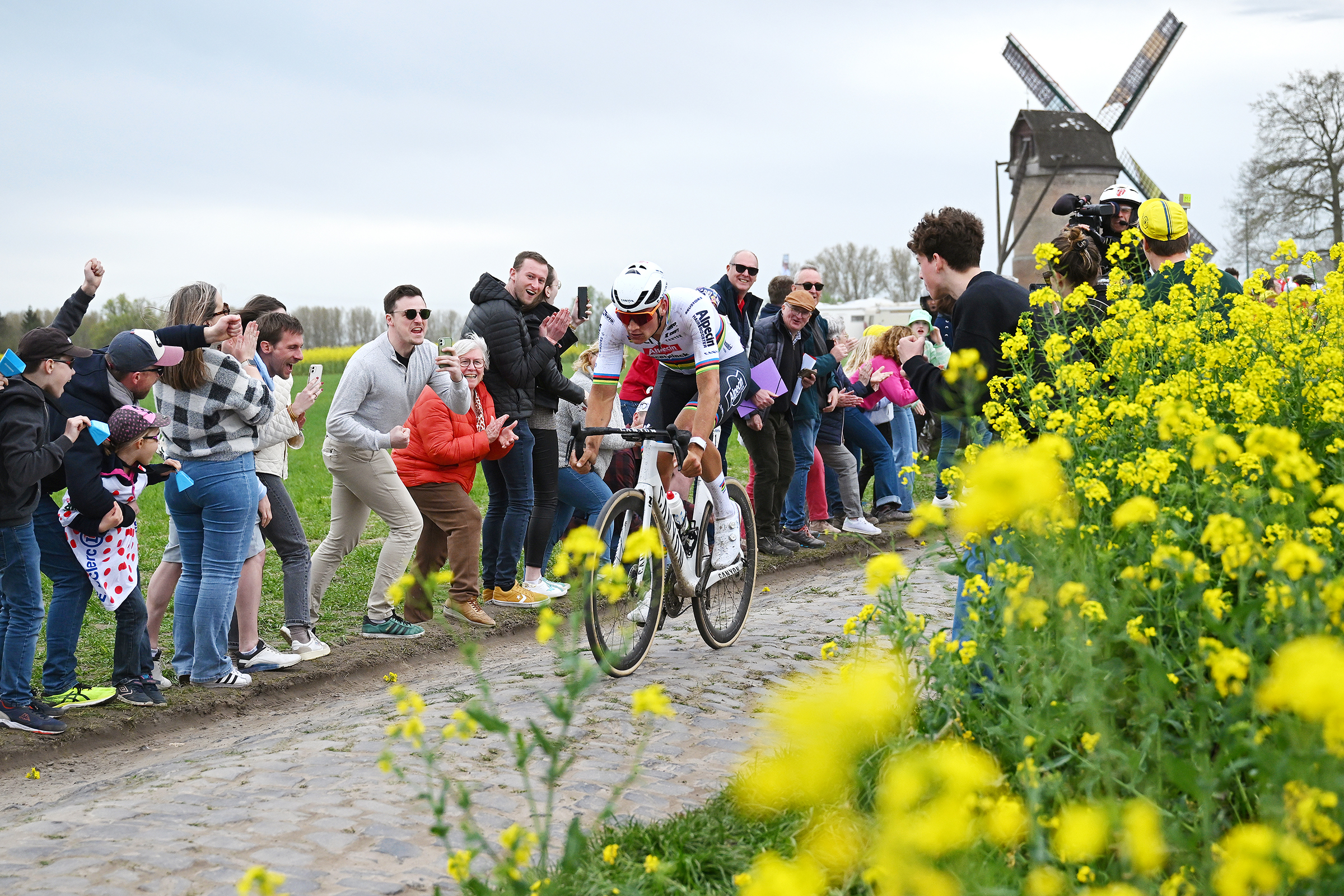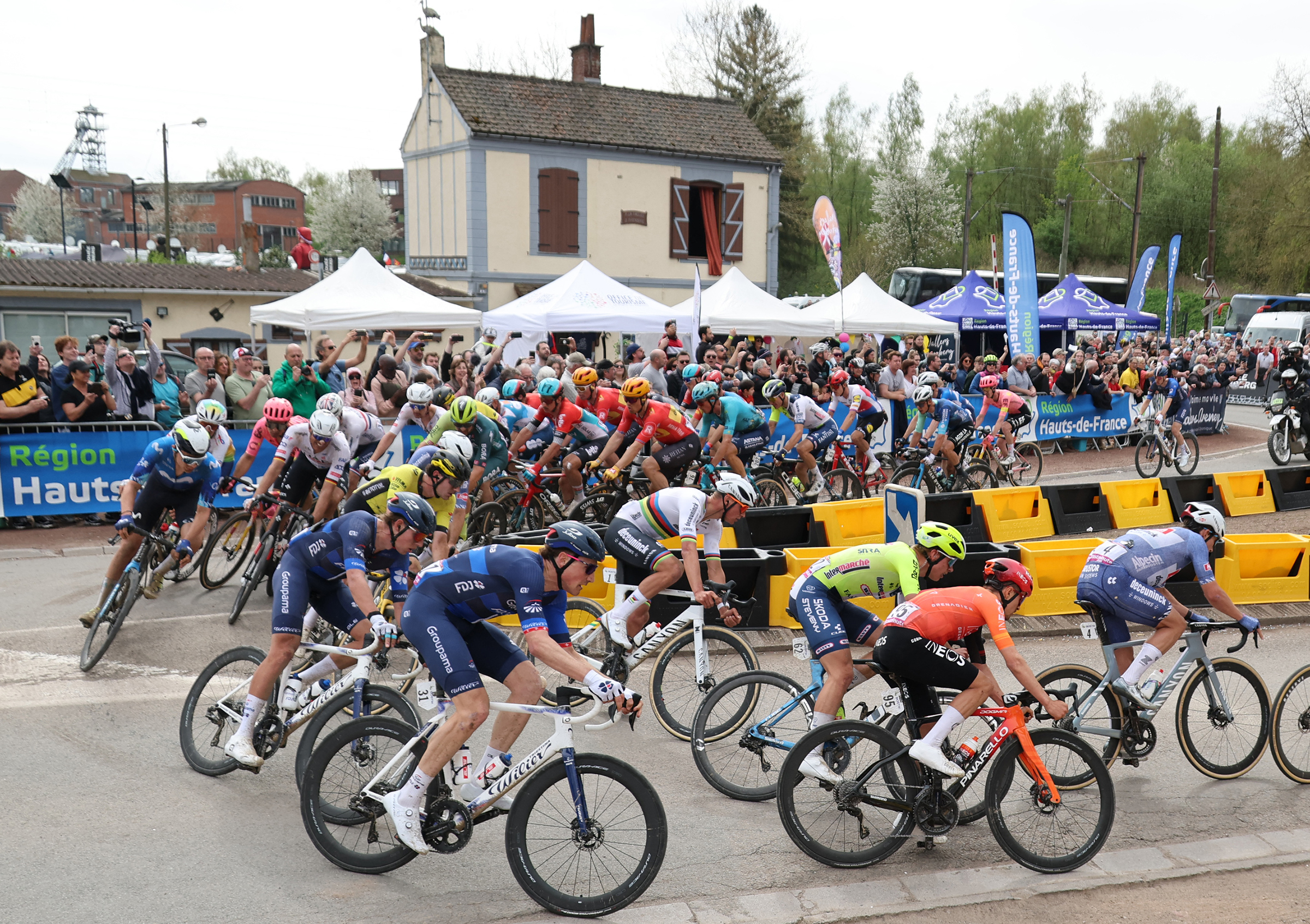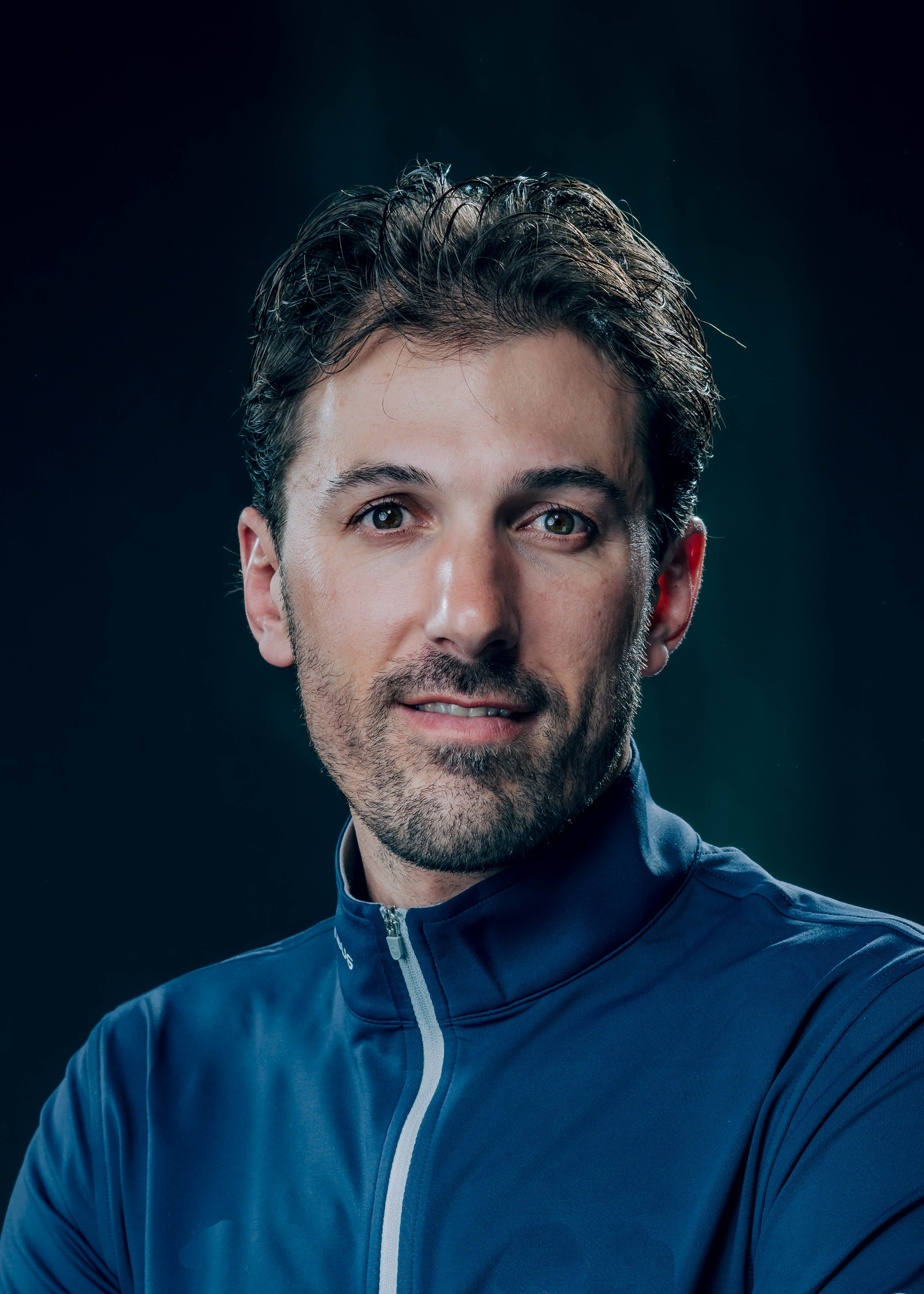Cancellara's Classics column: After Flanders-Roubaix double, Mathieu van der Poel should ride Liège-Bastogne-Liège
How the Hell of the North was an Alpecin-Deceuninck show from start to finish

There’s not too much to say. Paris-Roubaix was an Alpecin-Deceuninck show from start to finish. Mathieu van der Poel was the big favourite, and he did what everybody thought he would do, but his team was also completely in command all the way from Compiègne to the velodrome in Roubaix.
In the end, there was no chance for the rest against Alpecin-Deceuninck. Finishing first and second with Van der Poel and Jasper Philipsen was only part of the story – they were in control all day long. In a race like Paris-Roubaix, there are always lots of possible scenarios, depending on the weather conditions, tactics and so on, but it felt like they would have handled any situation that emerged on Sunday.
There was only moment where I briefly thought they were in danger of losing control. After Philipsen punctured, Gianni Vermeersch went off the front with two dangerous guys, Nils Politt and Stefan Küng. It didn’t seem like the ideal situation, because I presume Alpecin would have preferred to have had Philipsen up there instead. But in the end, it didn’t really matter.
Like last week at the Tour of Flanders, Vermeersch was impressive again, and so was the whole team. It all worked out positively for them. When it came back together, Van der Poel made his winning move and that was that. Like last year, they capped it all off with Philipsen taking second place again. What more could you want than that?
Alpecin are an interesting team, because they have moved up gradually from Continental level to the WorldTour. The whole team was built around Mathieu from the start, and they grew with him, and then signing Philipsen in 2021 was another big step forward. Mathieu and Jasper lifted the team with their sporting performances, but more than anything, I think they’ve lifted the team with their mentality. When you win in that way with riders of that quality, it lifts the whole organisation. Everybody does their job a little bit better.

Van der Poel was by far the strongest rider on the cobbles this Spring and he was also backed by the strongest team. There is no debate about that, but it’s only natural to wonder what might have happened if Van der Poel and Alpecin’s rivals had been at full strength in the last few weeks.
Wout van Aert was the big absentee after his crash at Dwars door Vlaanderen, and Visma-Lease A Bike had bad luck all Spring, with illness and injury affecting guys like Dylan van Baarle, Tiesj Benoot and Matteo Jorgenson at different times. Lidl-Trek lost Jasper Stuyven and Alex Kirsch in the same crash as Van Aert, and Mads Pedersen was injured there too.
If Visma had the whole gang and if Stuyven was around, then maybe we would have seen something else at Flanders and Roubaix. That’s the one question mark about this spring, the fact that a lot of strong teams didn’t have their best line-up for the biggest races.
The only team always at full strength was Alpecin. They were the only team with no issues. For the Tour of Flanders, they even had the luxury of leaving Philipsen out of the team so he could be fresh for Scheldeprijs and Paris-Roubaix. But to be clear: I don’t doubt Mathieu, I don’t doubt Jasper and I don’t doubt Alpecin. Looking at how they’ve raced in the last few weeks, they would have been very, very difficult for anybody to beat.
Liège-Bastogne-Liège?

I’m curious to see what will happen next because I don’t think Van der Poel’s Spring is over just yet. He’s in incredible form, so he should take the opportunity to try to do something even more special in the next two weeks. He’s expected to ride Amstel Gold Race, but I think he should also go and ride Liège-Bastogne-Liège.
It’s worth trying, considering the form Mathieu is in. And now, with Remco Evenepoel definitely missing and possibly Primož Roglič too, there is a big chance for Van der Poel to put in an impressive performance at Liège and maybe even to win it. Tadej Pogačar will be there, of course, but that could be a great battle.
And don’t forget that Mathieu was already very good at Liège-Bastogne-Liège back in 2020, the only time he raced it. He finished sixth, taking the sprint just behind the winning group. The race is not outside his range. I know he has a big year with the Olympics to come as well, but this is a rare chance.
In any case, Van der Poel has now won six Monuments and I think there are more to come. I can see him winning a fourth Ronde and a third Roubaix. It’s just a matter of time, but it will also be about his own motivation. At the moment, it’s all enjoyable, but let’s see if it’s still the same in a few years.
These days, the physical and mental investment in cycling is enormous. The amount of dedication and motivation you put into the smallest details is crazy, and I’m curious to see how long anybody can sustain that. After a time, it would only be normal to lose a little bit of motivation to keep pushing to get the most out of yourself. It certainly doesn’t get any easier.
When somebody wins the way Mathieu has been winning over the last few weeks, it’s tempting to make comparisons with the past, but it’s not necessary. He’s not the new Eddy Merckx. Eddy is Eddy, and Mathieu is Mathieu. In the same way, Tom Boonen was his own man, and I was my own man. Let’s just enjoy the moment and enjoy Mathieu for what he is right now – the main man of this generation in the Classics.
The Arenberg chicane and a blistering speed

While Van der Poel lived up to all expectations, the famous chicane before the Arenberg didn’t play as important a role as many people had feared. The wind and the early speed made sure of that. The race broke up really early, so we only had 30 or so riders coming to the Arenberg chicane together rather than a peloton of more than 100 riders. That made a big difference, and thankfully everybody came through it safely.
The problem with the Arenberg was never the approach. It was simply that everybody reaches the cobbles at 70kph and when you hit the bump in the road after 200 metres, you have crashes. As I said before the race, I could understand why ASO wanted to slow the speed on the approach to the Arenberg. I support that idea, but maybe a different solution to the problem can now be found for next year.
After the race, meanwhile, there was a lot of talk about the new record average speed for Paris-Roubaix of 47.8kph. I think the wind conditions obviously played a part in that, but so does the equipment options that riders have these days. Even in respect to my final years as a rider, the bikes and clothing have moved onto a completely different level, so I’m not sure if it’s entirely relevant to compare the speed to previous generations.
Riding Paris-Roubaix with 32mm tyres like they do today makes a huge difference, and so do the aero bikes. At Saxo and Trek, I never rode Roubaix with an aero bike, and I’m pretty sure I never rode it in a skinsuit either. A couple of teams were just starting to use skinsuits in Classics near the end of my career, and, honestly, back then we were almost laughing at the idea. Now pretty much everybody does it.
The equipment has taken cycling to a new level in terms of speed, but a record like Sunday’s is still only a statistic. The important thing at Paris-Roubaix is the race itself and the memories it gives us. We won’t forget Sunday in a hurry.

Get unlimited access to all of our coverage of the Spring Classics – including reporting, breaking news and analysis from the Paris-Roubaix, Tour of Flanders and more. Find out more.
Fabian Cancellara is an ex-professional cyclist who raced from 2001 to 2016 for Mapei, Fassa Bortolo, CSC and Trek. One of a select trio of riders to have won Paris-Roubaix and the Tour of Flanders three times, alongside arch rival Tom Boonen and Johan Museeuw, he is the only racer who can add the Strade Bianche triple to that glittering statistic – first across the line in Siena at four year intervals between 2008 and 2016."Spartacus" was also a formidable time trialist: four times world champion, twice Olympic champion, his final race as a professional cyclist came in the TT at the Rio Olympics in 2016, where he triumphed over second-placed Tom Dumoulin by a staggering 47 seconds. Alongside various business interests – and being a Cyclingnews columnist, of course – Cancellara is a founder of the Tudor Pro Cycling team, currently racing at UCI Pro Team level.
